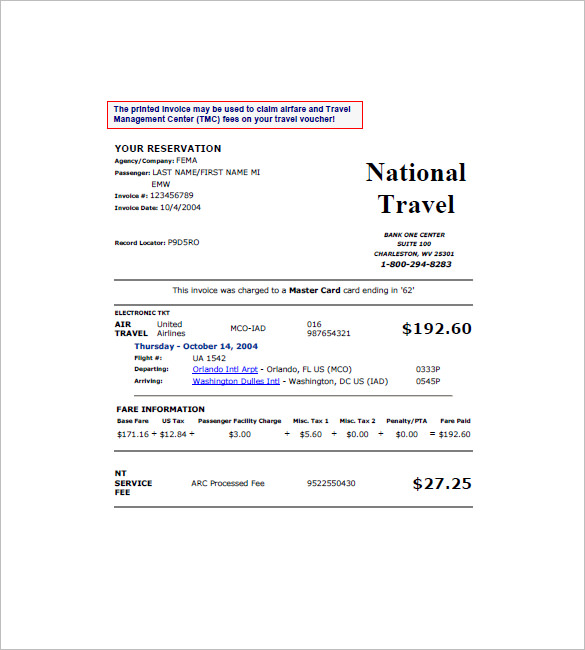Travel Agency Bill Format: Your Guide to Creating a Professional Invoice

As a travel agent, you’re probably used to dealing with all sorts of paperwork and documents on a daily basis. From booking flights to arranging hotel reservations, there’s a lot that goes into making sure your clients have a seamless travel experience. But when it comes to getting paid for all your hard work, you need to make sure you’re using a professional travel agency bill format.
What is a Travel Agency Bill Format?
A travel agency bill format is a document that outlines the services you’ve provided to a client, along with the costs associated with those services. It’s essentially an invoice that shows your clients what they owe you, and how they can pay you. Using a professional travel agency bill format is important because it helps you stay organized, and it also helps your clients know what to expect.
Why Do You Need a Travel Agency Bill Format?
You need a travel agency bill format for several reasons:
- It helps you get paid on time: By sending your clients a clear and concise invoice, you can ensure that they know exactly how much they owe you, and when the payment is due.
- It helps you stay organized: Using a standard travel agency bill format helps you keep track of all your client’s information, including their payment history and any outstanding balances.
- It looks professional: A well-designed travel agency bill format shows your clients that you’re a professional and reputable business.
What Should a Travel Agency Bill Format Include?
A good travel agency bill format should include the following information:
- Your company logo and contact information: This should include your company name, address, phone number, and email address.
- Client information: This should include the client’s name, address, and contact information.
- Invoice number and date: This should include a unique invoice number, as well as the date the invoice was created.
- List of services provided: This should include a detailed list of all the services you’ve provided to the client, including flights, hotel reservations, and any other travel arrangements.
- Costs associated with each service: This should include the cost of each service, as well as any taxes or fees that apply.
- Total amount due: This should include the total amount the client owes you, as well as any payment terms or deadlines.
Sample Travel Agency Bill Format
Here’s an example of what a travel agency bill format might look like:
Invoice #1023
Date: March 12, 2023
Bill To:
John Doe
123 Main St
Anytown, USA 12345
Service Details:
- Round-trip airfare from New York to Los Angeles: $500.00
- 3-night hotel reservation at the Hilton Los Angeles: $750.00
- Car rental for 3 days: $200.00
- Total: $1,450.00
Taxes and Fees:
- Sales tax: $100.00
- Airport fees: $50.00
- Total: $150.00
Total Amount Due: $1,600.00
Payment Terms:
- Payment is due within 30 days of invoice date.
- A late fee of 2% per month will be applied to any outstanding balances.
Tips for Creating a Professional Travel Agency Bill Format
- Use a standard template: Using a standard template can help you create a consistent and professional-looking invoice.
- Keep it clear and concise: Make sure your invoice is easy to read and understand.
- Include all relevant information: Make sure your invoice includes all the necessary information, including your company logo and contact information, client information, and a list of services provided.
How to Use a Travel Agency Bill Format
- Send it to your clients: Once you’ve created your invoice, send it to your clients via email or mail.
- Follow up: If your clients haven’t paid within the specified time frame, follow up with a phone call or email to remind them of their outstanding balance.
- Keep track of payments: Make sure to keep track of any payments you receive, and update your invoice accordingly.
Common Mistakes to Avoid
- Not including all necessary information: Make sure your invoice includes all the necessary information, including your company logo and contact information, client information, and a list of services provided.
- Not using a standard template: Using a standard template can help you create a consistent and professional-looking invoice.
- Not following up: If your clients haven’t paid within the specified time frame, follow up with a phone call or email to remind them of their outstanding balance.
Conclusion
Creating a professional travel agency bill format is an essential part of running a successful travel agency. By including all the necessary information, using a standard template, and following up with your clients, you can ensure that you get paid on time and maintain a positive relationship with your clients.